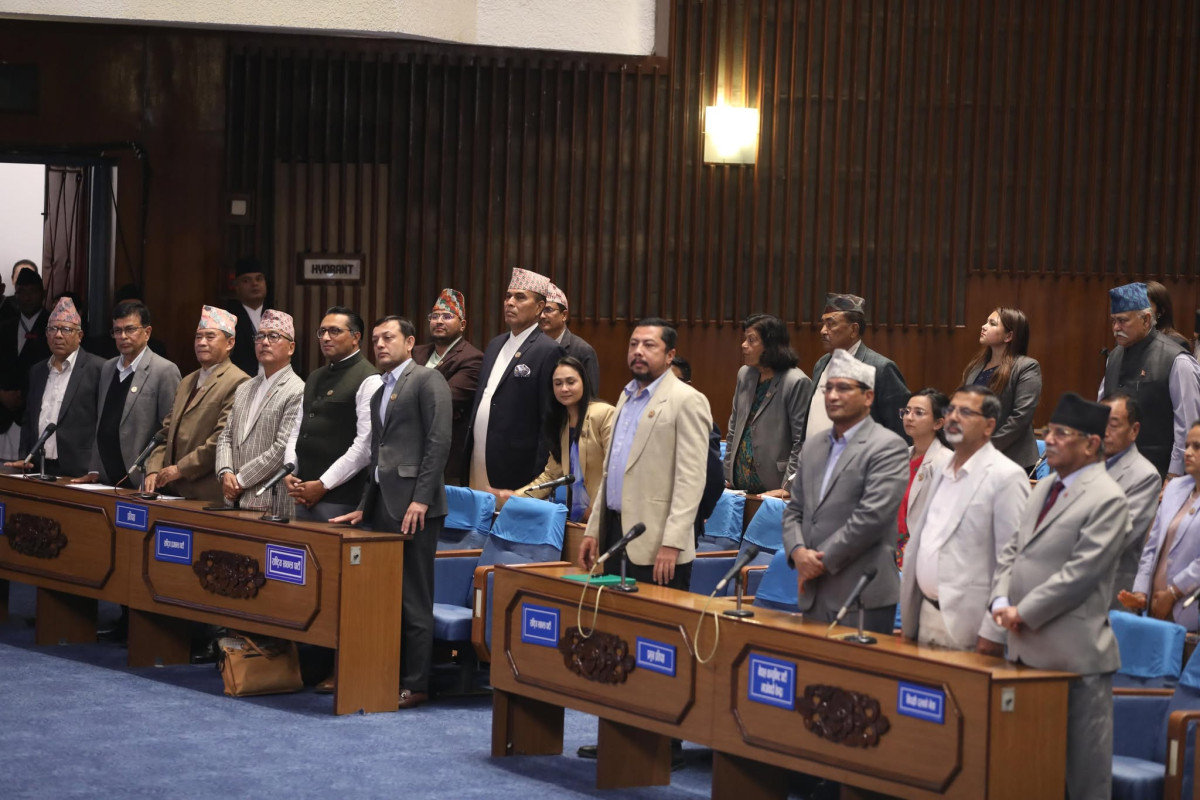

KATHMANDU: The visit visa scandal involving Home Minister Ramesh Lekhak has stalled parliamentary proceedings for more than seven days, blocking any debate on the national budget presented on May 29 by Finance Minister Bishnu Paudel.
Despite constitutional obligations to table the budget on time, opposition parties have been disrupting both houses of the Federal Parliament since May 27.
They demand Lekhak’s resignation over alleged involvement in an illegal visa racket. Although the budget was presented as scheduled, no discussion or scrutiny has taken place since then.
This ongoing obstruction continues to paralyze the legislature, postponing critical fiscal planning and decision-making processes.
On Thursday, efforts to end the deadlock surfaced when the CPN (Unified Socialist) proposed forming a parliamentary probe committee instead of pressing for immediate resignation. The ruling CPN-UML welcomed this proposal positively.
The Rastriya Swatantra Party (RSP) took a firmer stance. After its parliamentary party meeting, the RSP stated that Lekhak should resign to allow an impartial investigation, although their final position was still pending as of Thursday evening.
Adding to the political unrest, the Supreme Court has issued an order for criminal investigation against Maoist Centre spokesperson Agni Prasad Sapkota.
Meanwhile, Unified Socialist chair Madhav Nepal faces a corruption case from the CIAA related to the Patanjali land scandal.
The Maoist Centre has stayed silent on these judicial actions, while the Unified Socialist has denounced them as politically motivated attempts to undermine their leadership.
Despite the parliamentary deadlock, Finance Minister Paudel announced that the budget implementation has already begun in coordination with relevant ministries.
He instructed officials to prepare procurement plans to accelerate execution once the budget is formally approved.
With no breakthrough between ruling and opposition parties, the sessions of both houses scheduled for today are also expected to face disruption, prolonging the delay in budget deliberations.